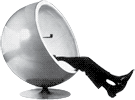Order of parameters and currying
I got really confused when reading A Gentle Introduction To Haskell, version 98 (page 10, Functions), which aim to explain currying as the first concept of describing functions.
- Type definitions with
->operator is right associative. - Function calls with parameters separated by space (" ") are left associative.
- Parameters are ordered from left to right both in type definitions and function calls.
For example see the type definition of div.
> :t div
:: (Integral a) => a -> a -> a
- Numbering the parameters,
a1 -> a2 -> a3 - Using right associative rule for
->operator,a1 -> (a2 -> a3)
So the type definition roughly translates to:
- A value of
a1applied to function div evaluates a function - A value of type
a2applied to this function evaluates to a value of typea3
Calling divwith parameters 10 and 2 give the result 5.
> div 10 2
=> 5
- Using left associative rule for parameters in function calls,
(div 10) 2
This means that the function returned by applying 10 to div translates to 10/x. 2 applied to this function evaluates to 5.
10 is of type a1, 2 of type a2 and 5 of type a3.
The infix operator of div works in the same manner.
> :t (/)
:: (Fractional a) => a -> a -> a
> (/) 10 2
=> 5.0
> 10 / 2
=> 5.0
> 10 `div` 2
=> 5
So the div can be defined as.
div a b = a / b
Note also that operators can have different priority and "associativeness". This is defined by infix, infixl and infixr functions. But functions and -> in type definitions work as explained above.
The "function application" operator, $, can be used to change the left associative rule for function argument application.
f $ x = f x
One example where you want to apply several functions at the same time and want to avoid parentheses.
Prelude> let inc = (+) 1
Prelude> inc div 10 2
The function `inc' is applied to three arguments,
Prelude> inc $ div 10 2
6
Prelude> inc (div 10 2)
So you can make multiple function applications right associative.
References
Also see Lambda Calculus: Motivation for an mathematical example of currying.
